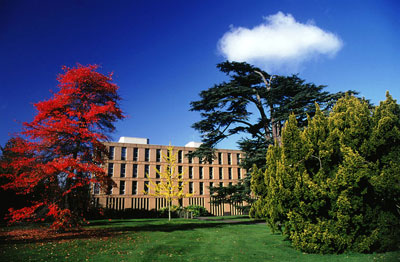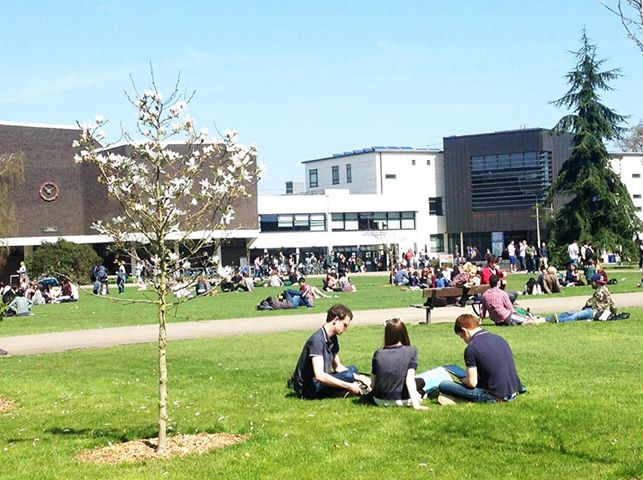The University of Reading is ranked in the top 1% of universities in the world. We are a global university that enjoys a world-class reputation for teaching, research and enterprise.
The University was established in 1892, received its Royal Charter in 1926, and has developed into a leading force in British and international higher education.
We deliver a world-class student experience, research-led teaching and our graduate employability record is excellent. The numbers of our students going on to higher level study is well above the national average.
The University continues to evolve, reflecting an ever-changing world, which drives the development of our areas of research excellence and strength. We are leading the way in multidisciplinary work in biomedical and pharmaceutical sciences, housed in a new £17 million centre, for example.
We are committed to maintaining a supportive, challenging and high-quality experience for students and staff alike and to preserving the heritage and beauty of some of the most beautiful university campuses in the UK.
If you are considering joining us at Reading as a member of staff or student you can be sure of a very warm welcome.
We are proud of our long and fascinating history at the University of Reading. Our tradition of academic excellence dates back to the late nineteenth century and owes much to the vision and generosity of several notable individuals.
Our origins lie in the Schools of Art and Science established in Reading in 1860 and 1870. These became part of an extension college opened in 1892 by Christ Church, Oxford. The college thrived, receiving its first treasury grant in 1901. Three years later the local Palmer family, of the famous biscuit manufacturer Huntley & Palmers, donated our London Road campus that is home to our Institute of Education today. We received a Royal Charter in 1926, the only university to do so between the two world wars. At the same time, Dr William M Childs became the University's first Vice-Chancellor.
Since then a number of milestones have shaped the University's history and made us the centre of excellence and vibrant community that we are today. In 1947 we purchased our main Whiteknights campus, the former country estate of the Marquis of Blandford. In 2008, the University's merger with Henley Management College gave us our Greenlands campus on the River Thames. These together with our historic London Road campus, are amongst the most beautiful places to study in the UK.
The University of Reading has now established itself in the top 1% of universities in the world renowned for its exciting and innovative research-led teaching, a friendly and supportive environment and an excellent graduate employability record.
We began delivering courses in Johor Bahru, Malaysia in June 2012 and the planned opening of our campus in Malaysia in 2015 is an important and very exciting step for the University's future. We look forward to welcoming students from Malaysia and across the world to our new campus where they will benefit from a world-class student experience.
We are a global university with 17,040 students from 141 different nationalities.
Region |
Number of students |
|
UK |
10,638 |
|
Other EU |
2,408 |
|
International (non-EU) |
3,994 |
Level of study |
Number of students |
|
Undergraduate |
9,326 |
|
Postgraduate |
7,714 |
Faculty of Arts, Humanities and Social Science
School of Arts and Communication Design
Department of Art
Department of Film, Theatre and Television
Department of Typography and Graphic Communication
Institute of Education
School of Humanities
Department of Classics
Department of History
Department of Philosophy
School of Law
School of Literature and Languages
Department of English Language and Literature
Department of Modern Languages and European Studies
School of Politics, Economics and International Relations
Department of Economics
Department of Politics and International Relations
International Study and Language Institute
Faculty of Life Sciences
School of Agriculture, Policy and Development
School of Biological Sciences
School of Chemistry, Food and Pharmacy
Department of Chemistry
Food and Nutritional Sciences
The Reading School of Pharmacy
School of Psychology and Clinical Language Science
Department of Clinical Language Sciences
Department of Psychology
Faculty of Science
School of Construction Management and Engineering
School of Archaeology, Geography and Environmental Science
Department of Archaeology
Department of Geography and Environmental Science
School of Mathematical and Physical Sciences
Department of Mathematics and Statistics
Department of Meteorology
School of Systems Engineering
| Qualification type | Qualification short name | Required level |
|---|---|---|
| International English Language Test Score | IELTS |
Undergraduate 6.5 - 7.0 Postgraduate 6.5 - 7.0 |
| Test of English as a Foreign Language (paper-based version) | TOEFL (paper-based) | Undergraduate 570 - 600 Postgraduate 570 - 600 |
| Test of English as a Foreign Language (internet-based version) | TOEFL (internet-based) | Undergraduate 88 - 100 Postgraduate 88 - 100 |
| Cambridge Certificate of Proficiency in English | CPE | Undergraduate C - B Postgraduate C - B |
| Test of English for Educational Purposes | TEEP |
Undergraduate 6.5 - 7.0 Postgraduate 6.5 - 7.0 |
| Pearson English Test | Pearson | Undergraduate 67 Postgraduate 67 |
Undergraduates
For 2014 undergraduates, the School of Psychology and Clinical Language Sciences will offer up to three International Excellence Scholarships each worth £4000. These scholarships will be made to students outside of the EU on the basis of outstanding academic achievement.
Postgraduate taught students
For 2014, we will be offering a School of Psychology and Clinical Language Sciences Postgraduate International Excellence Scholarship worth £4,000. This scholarship will be made to students outside of the EU on the basis of outstanding academic achievement.
Tuition fee for new international undergraduate students for 2014/15 fall under two bands:
· Band 1: £13,750
· Band 2: £16,500
The band system also applies to tuition fees for the continuing international students for 2014/15:
· Band 1: £13,230
· Band 2: £15,750
Please note: Band 2 courses are programmes that have a significant laboratory or 'workshop' content, e.g. courses within the Faculties of Science and Life Sciences.
These fees cover tuition, matriculation, examination (not resits), graduation and membership of the Students' Union. They refer to the current academic year.
POSTGRADUATE TAUGHT
| 2014/15: | UK & EU STUDENTS |
INTERNATIONAL STUDENTS |
|---|---|---|
| Faculty of Arts, Humanities and Social Science | £5,500* | £13,750 |
| Faculty of Life Sciences | £5,500* | £13,750 - £16,500* |
| Faculty of Science | £5,500 | £16,500 |


2014 © a2fairs. All Rights Reserved. powered by twopulse.com